Review: Sixteen years later, ‘Donnie Darko’ makes an eerily prescient return
- Share via
If revisiting an old movie is a bit like going back in time, that sense of disorientation is doubled in “Donnie Darko.” A haunted miasma of youthful alienation, suburban malaise, cosmic upheaval and 1980s pop-cultural infatuation, writer-director Richard Kelly’s captivatingly strange 2001 debut plays more than ever like its own suspended-in-time artifact. Or perhaps I should say Artifact, in reference to the jet engine that comes tumbling out of the sky on the night of Oct. 2, 1988, crashing into the bedroom of our teenage hero, Donnie (Jake Gyllenhaal).
Time travel plays a key role in the movie’s distended wormhole of a narrative, which takes inspiration from textbooks both real (Stephen Hawking’s “A Brief History of Time”) and fictional (“The Philosophy of Time Travel,” written by Roberta Sparrow, who is played in the film by Patience Cleveland). But a simpler portal to the past seems to open whenever we set eyes on Jake and Maggie Gyllenhaal, Jena Malone and Seth Rogen (in a brief, memorable screen debut), their young faces looking touchingly unblighted by experience.
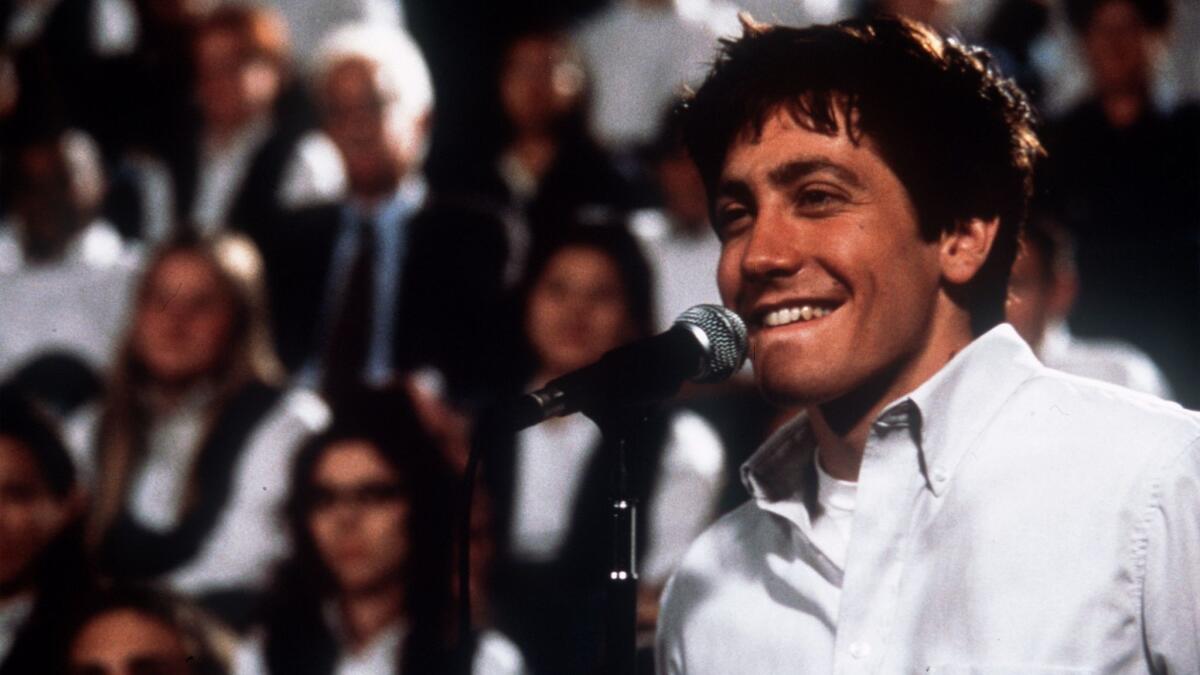
Broodingly intelligent, heavily medicated and possibly schizophrenic, Donnie is no ordinary troubled teen.
That all four actors have gone on to significant careers only underscores the remarkable prescience of a movie that never quite found its own moment, at least in theaters. First screened at the 2001 Sundance Film Festival, “Donnie Darko” was released by Newmarket Films later that October — a little more than a month after 9/11, which decimated the already narrow audience for a weird, melancholy indie drama set in motion by a freak plane accident.
But the movie discovered a passionate cult following on DVD, and when a 20-minutes-longer director’s cut was released, well before 2004, “Donnie Darko” had been vindicated as one of the most remarkable if head-spinning first features by an American independent filmmaker in then-recent memory. Now the recipient of a 4K restoration and back in theaters 16 years later (in both its original release version and the director’s cut), the movie feels perfectly timed to coincide with our nation’s latest flirtation with the apocalypse.
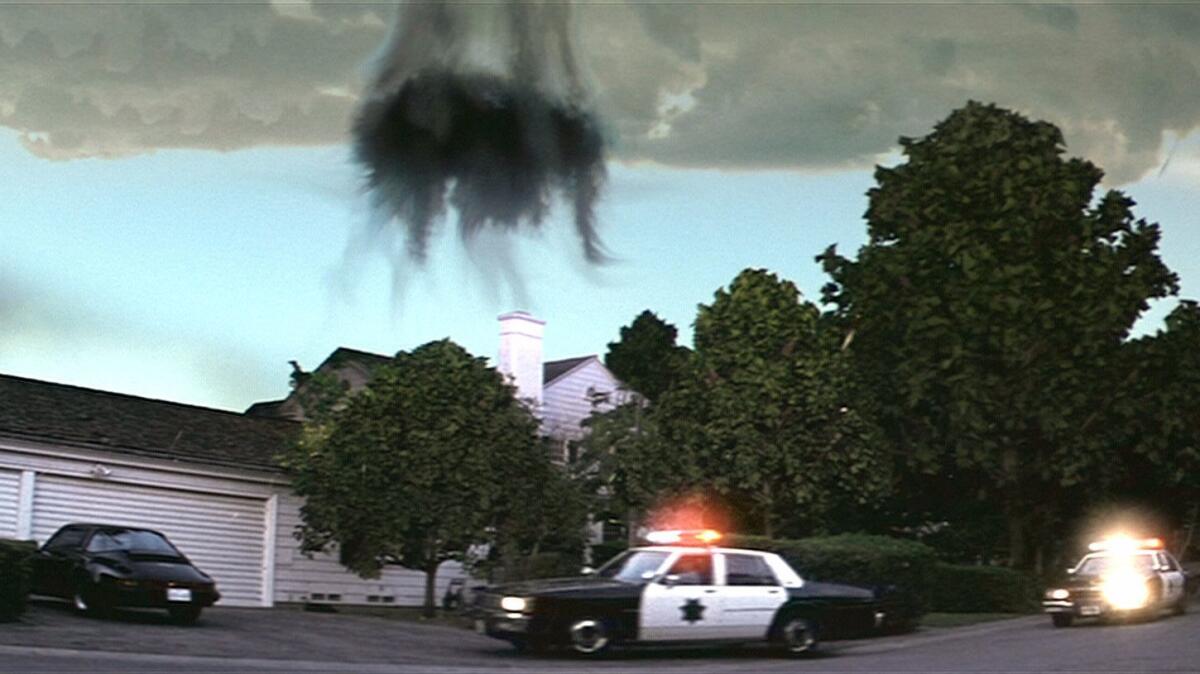
Certainly it’s hard not to smile at the movie’s opening line — “I’m voting for Dukakis,” Donnie’s older sister (Maggie Gyllenhaal) announces provocatively at the dinner table — and its distant reminder of a divisive yet far more civil moment in American politics. Donnie will soon stage his own personal rebellion against the forces of Reagan-era conformity, represented less by his parents (Holmes Osborne and Mary McDonnell, both superb) than by his high school’s viciously censorious gym teacher (a priceless Beth Grant) and her motivational-speaker crony (Patrick Swayze).
Broodingly intelligent, heavily medicated and possibly schizophrenic, Donnie is no ordinary troubled teen, and his is no ordinary act of protest. He is spurred on by bizarre ectoplasmic visions and, most of all, by Frank, a 6-foot-1 bunny rabbit who shows up with an ominous grin and an equally ominous prophecy: “Twenty-eight days, six hours, 42 minutes, 12 seconds. That is when the world will end.”
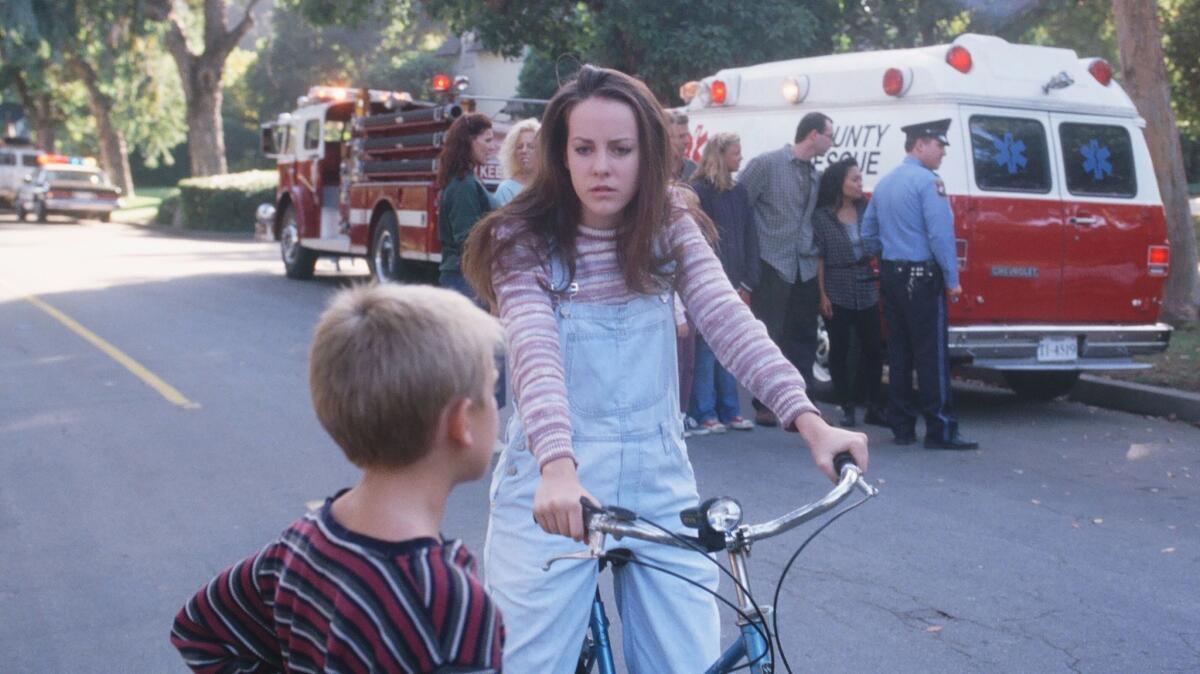
Is the entire world at stake, or just Donnie’s? The genius of Kelly’s movie is that it refuses to acknowledge a meaningful difference. His totalizing vision, conflating an epic bout of depression with the threat of global annihilation, in some ways anticipated (without necessarily influencing) Lars von Trier’s “Melancholia” (2011). There is solipsism as well as grandeur in these doom-and-gloom spectacles, but there is also tremendous feeling — and in “Donnie Darko,” that feeling manifests itself most powerfully in an abiding reverence for the cultural touchstones of its moment.
The movie feels perfectly timed to coincide with our nation’s latest flirtation with the apocalypse.
The brilliant casting of generational icons like Swayze, Katharine Ross (as Donnie’s therapist) and Drew Barrymore (as his English teacher) proves both surreal and strangely moving, as does a near-climactic image that wordlessly references Barrymore’s own breakthrough movie, “E.T.”
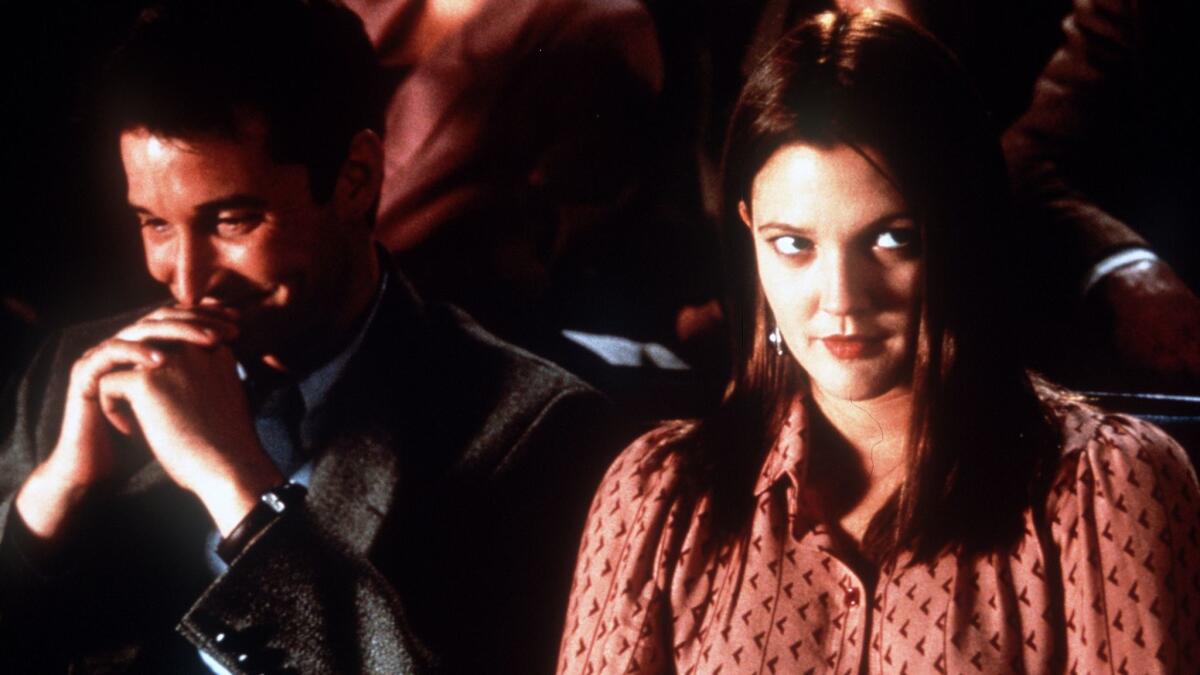
This kind of pop nostalgia, of course, has only intensified in the 16 years since “Donnie Darko’s” initial release, as demonstrated most recently by the hit Netflix series “Stranger Things,” which shares Kelly’s affection for Steven Spielberg and
Kelly’s tale of youthful temptation and heroic sacrifice plays in some ways like a twisted spin on the Christian gospel, sprinkled with excerpts from Sparrow’s secular scripture. (Another clue: Check out the theater marquee when Donnie and his girlfriend, played by Malone, go to see “Evil Dead.”) It was Kelly, of course, who would fatefully take the fall not long after “Donnie Darko’s” triumphant rediscovery.
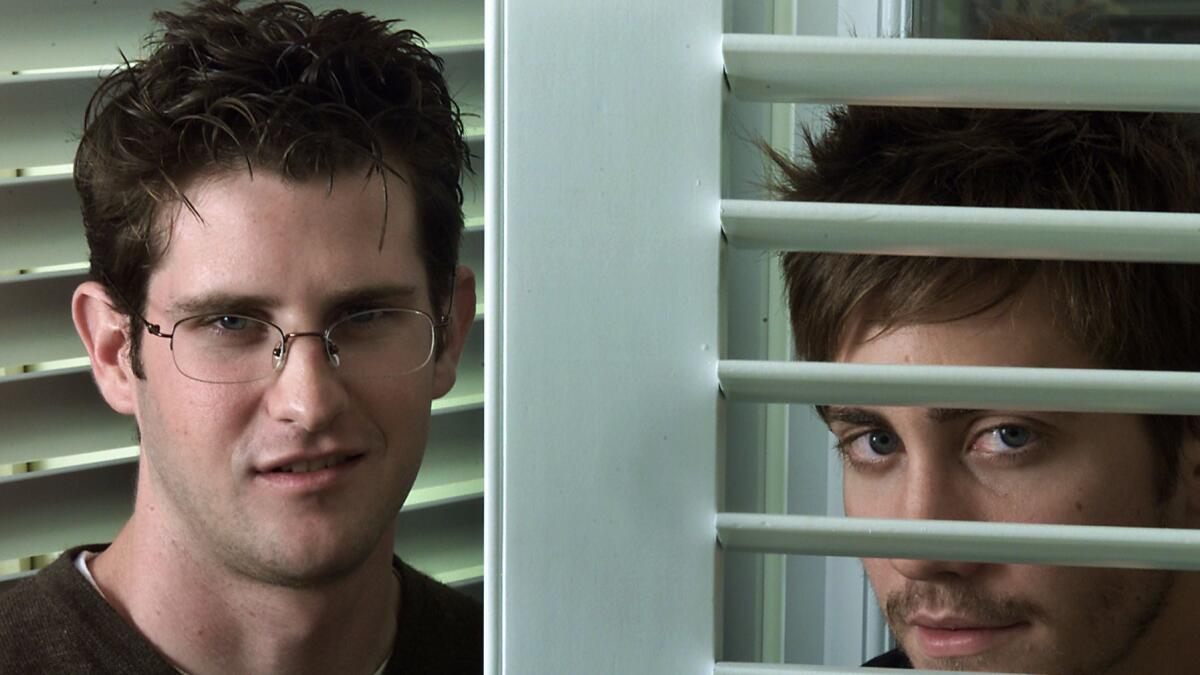
The year 2006 saw the disastrous Cannes premiere of the director’s sprawlingly ambitious 160-minute end-times satire “Southland Tales,” an instant film maudit that was despised by many, championed by a few, and ultimately trimmed and recut en route to a theatrical run that made “Donnie Darko” look downright lucrative. Since then, Kelly has made only one feature, the Cameron Diaz-starring thriller “The Box” (2009), though he has said in recent interviews that he’s in the process of fully financing his next independent project — which is a much more challenging endeavor than it was 16 years ago.
An aversion to self-editing may be Kelly’s Achilles’ heel as a filmmaker, but whatever the future may hold for this singular talent, his first feature remains a pure pleasure — a work that maneuvers its wild tonal shifts, its spasms of humor and density of ideas with an astonishing sense of control. Every living creature may die alone, in the memorable words of Roberta Sparrow, but “Donnie Darko” still lives.
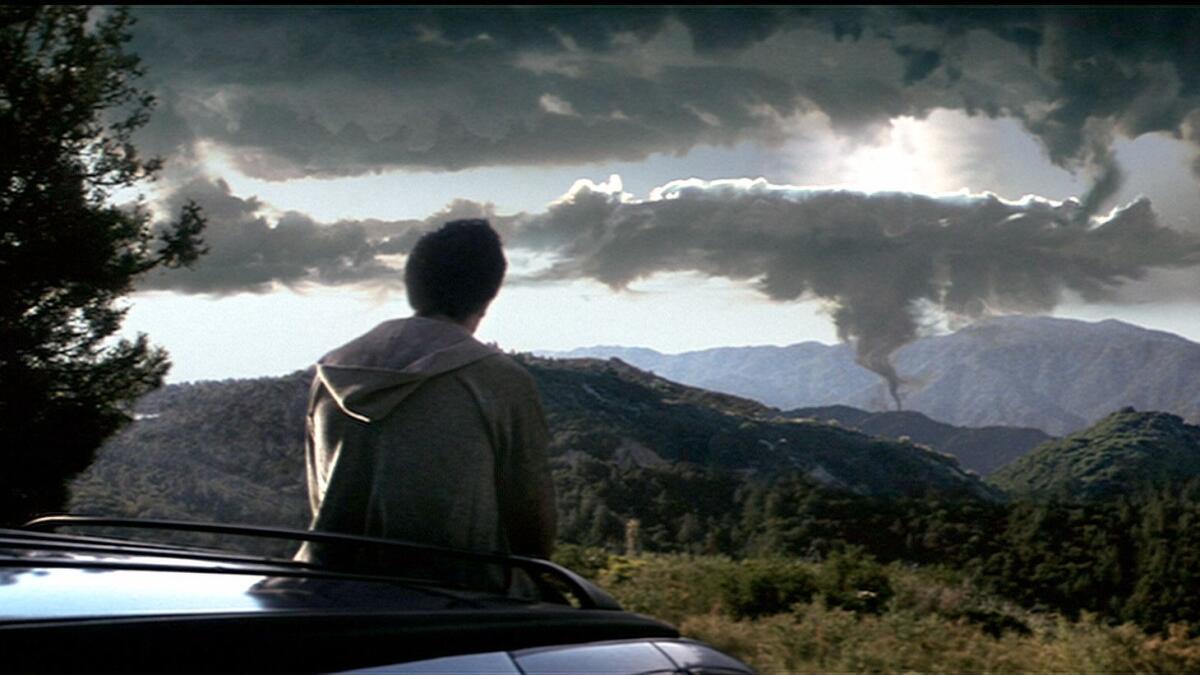
------------
‘Donnie Darko’
MPAA rating: R for language, some drug use and violence (theatrical cut); R for language, some underage drug and alcohol use, and violence (director’s cut)
Running time: 1 hour, 53 minutes (theatrical cut); 2 hours, 13 minutes (director’s cut)
Playing: Cinefamily, Los Angeles, and Laemmle’s Playhouse 7, Pasadena
More archival images from ‘Donnie Darko’
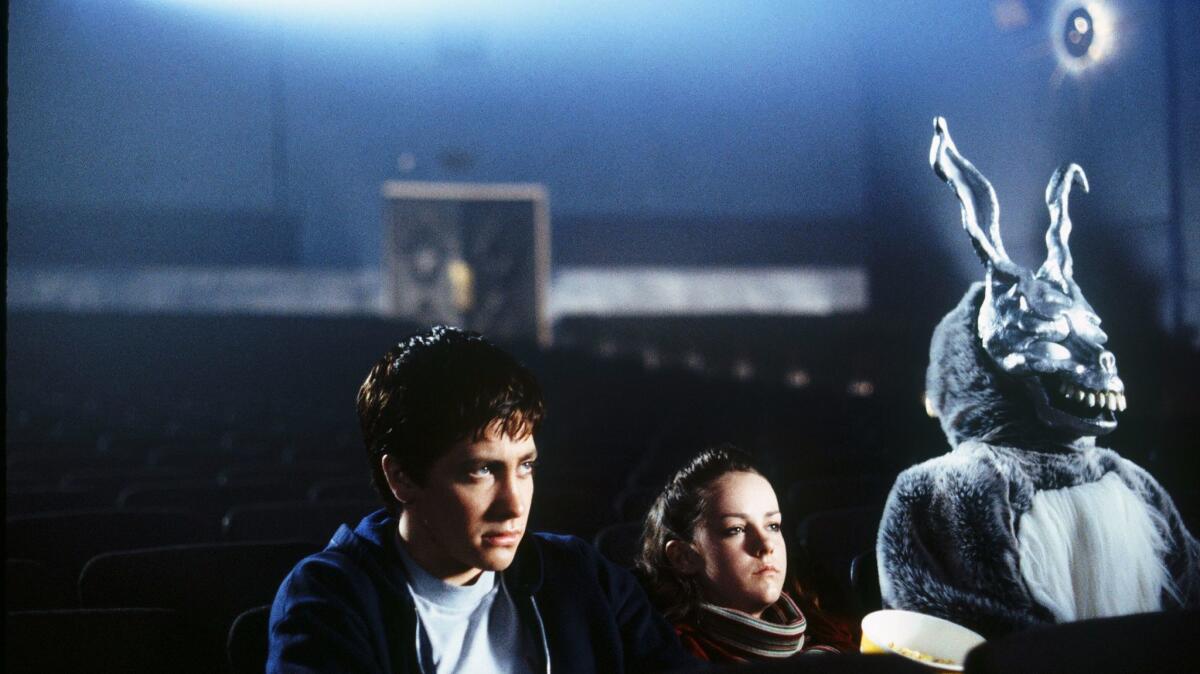
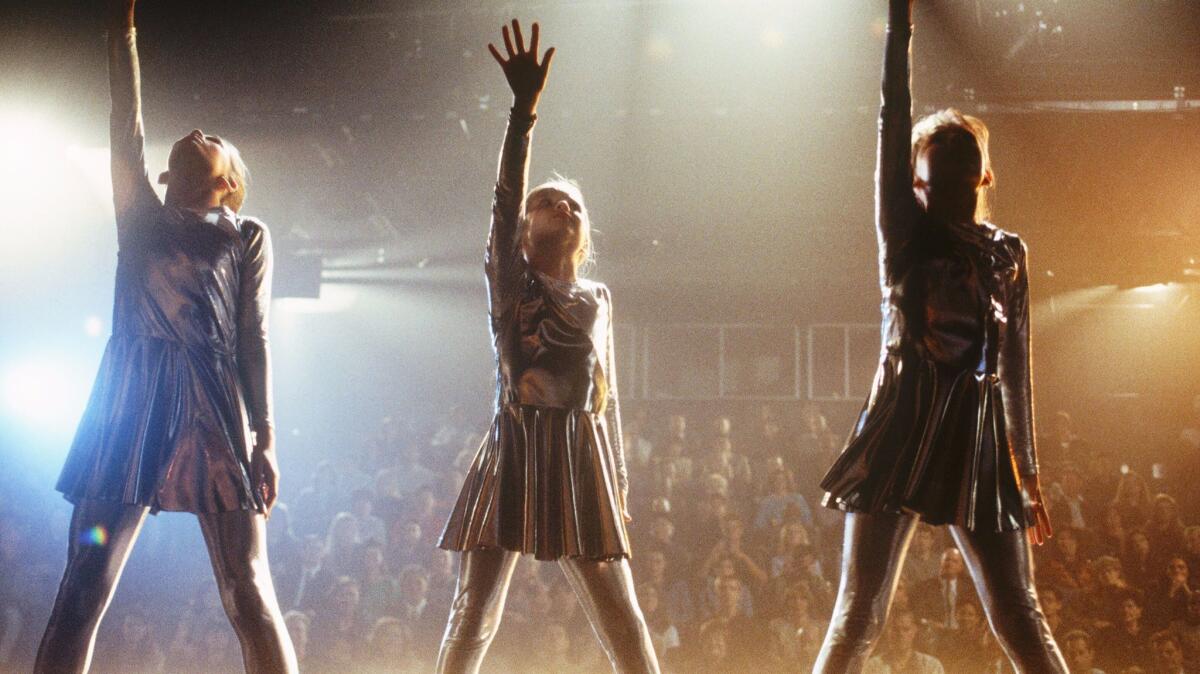
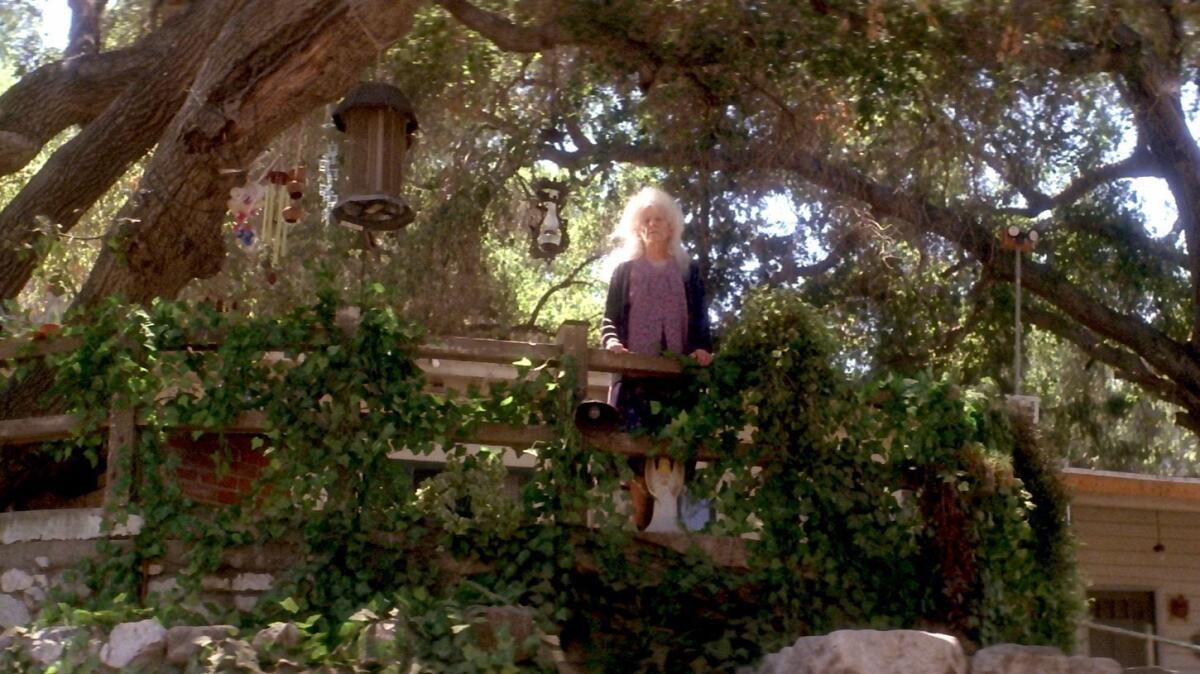
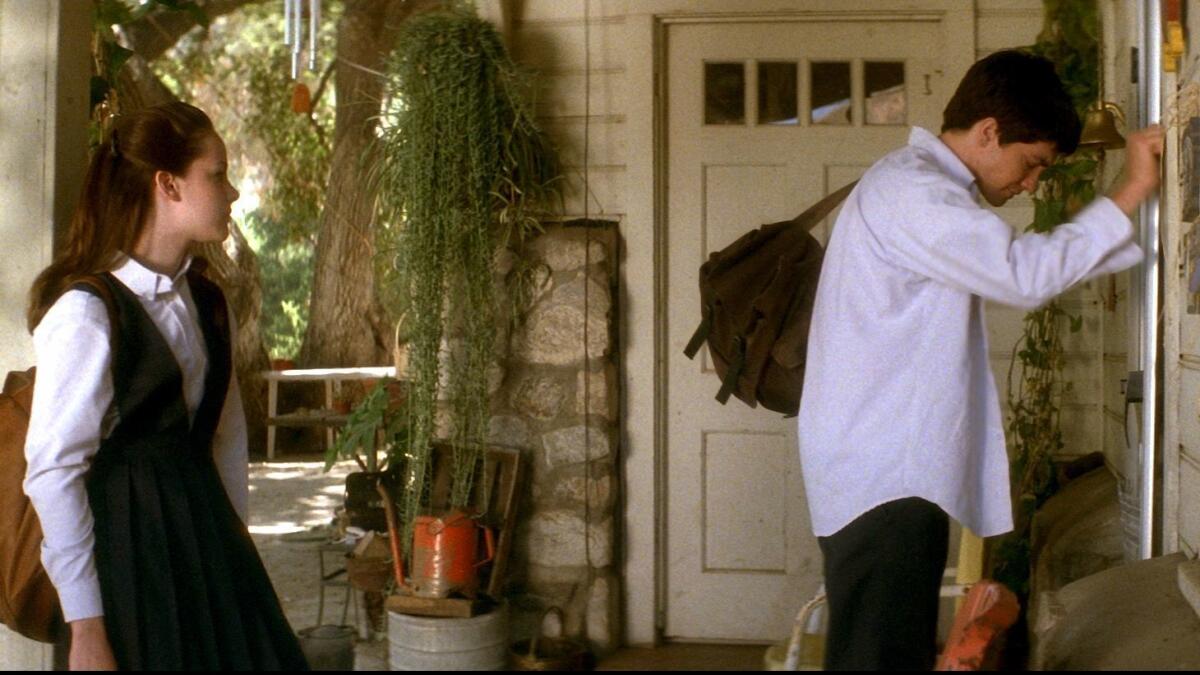
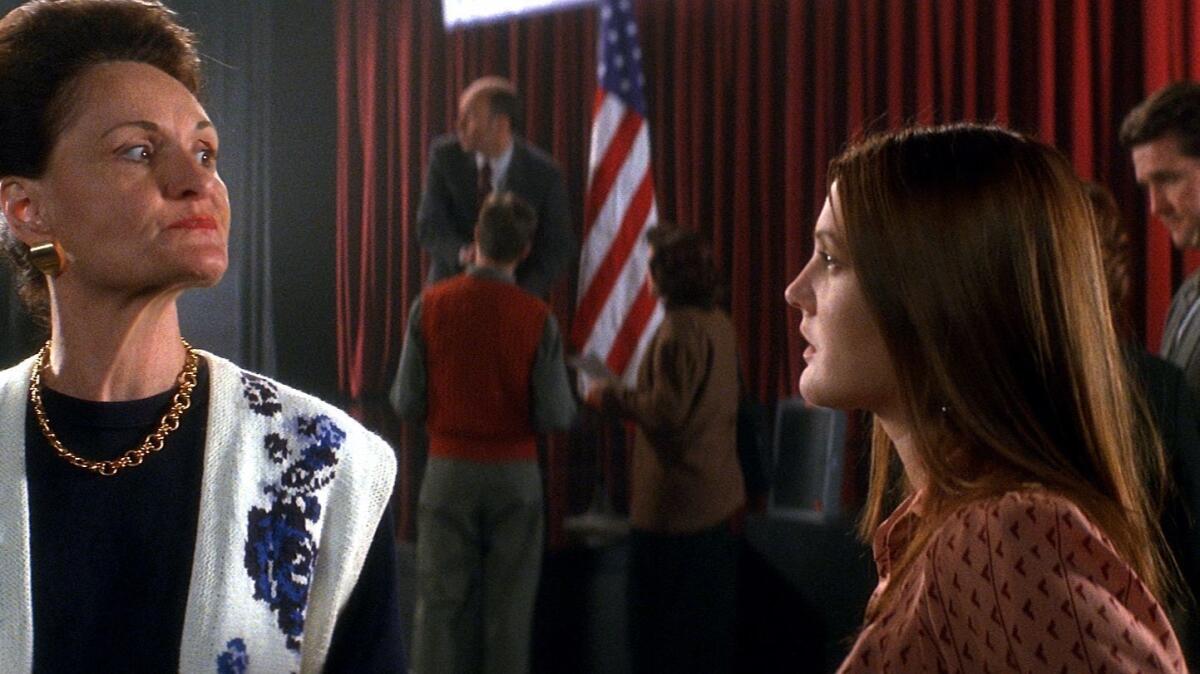
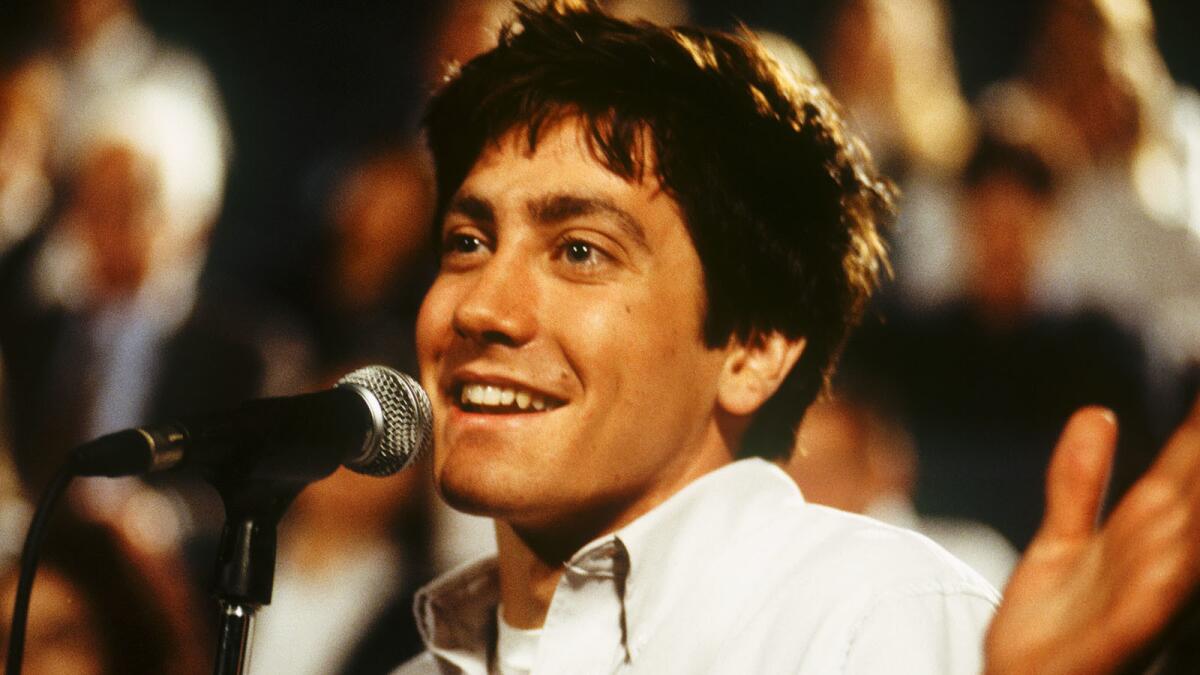
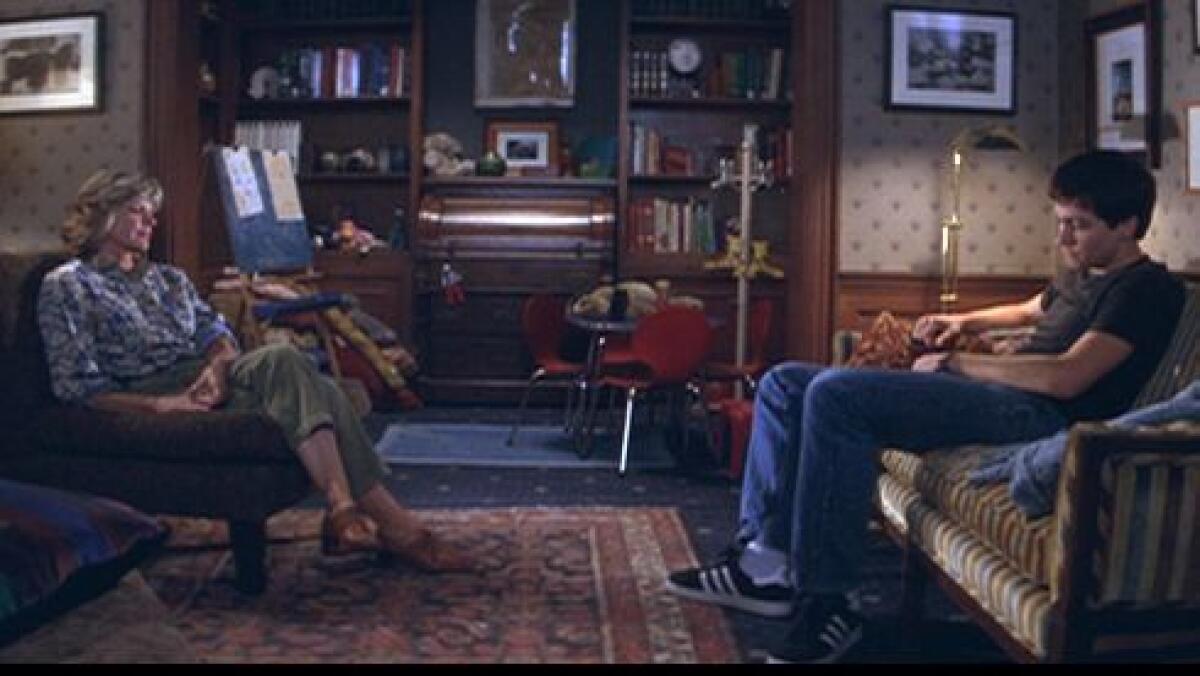
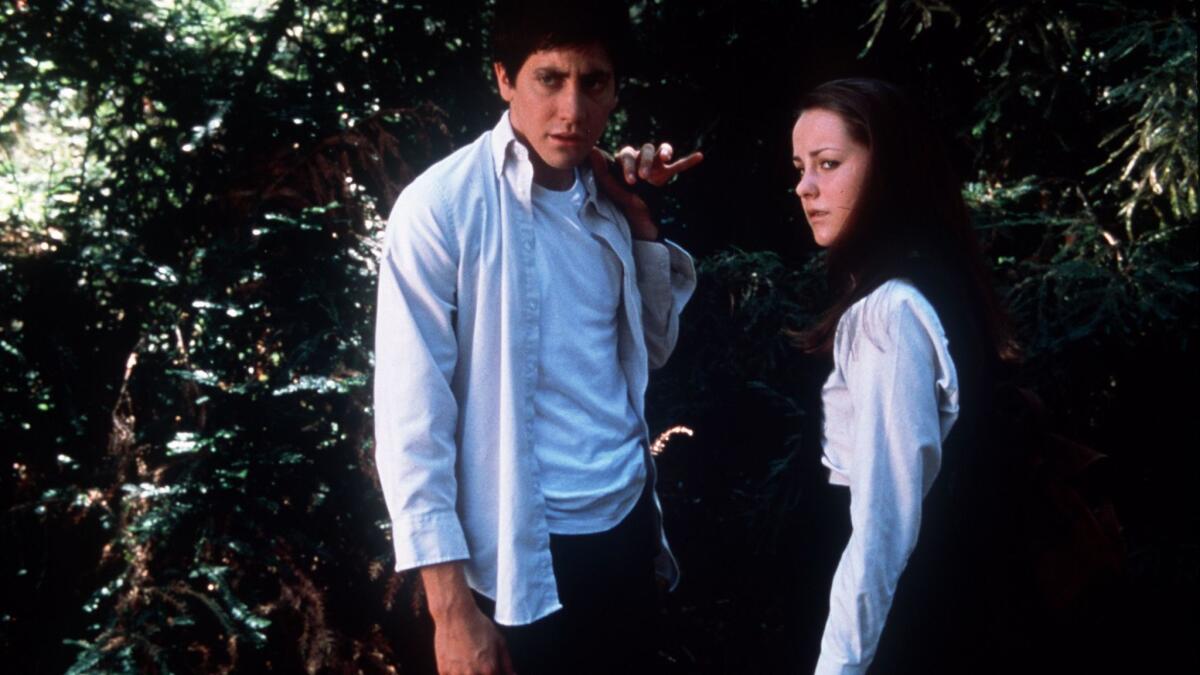
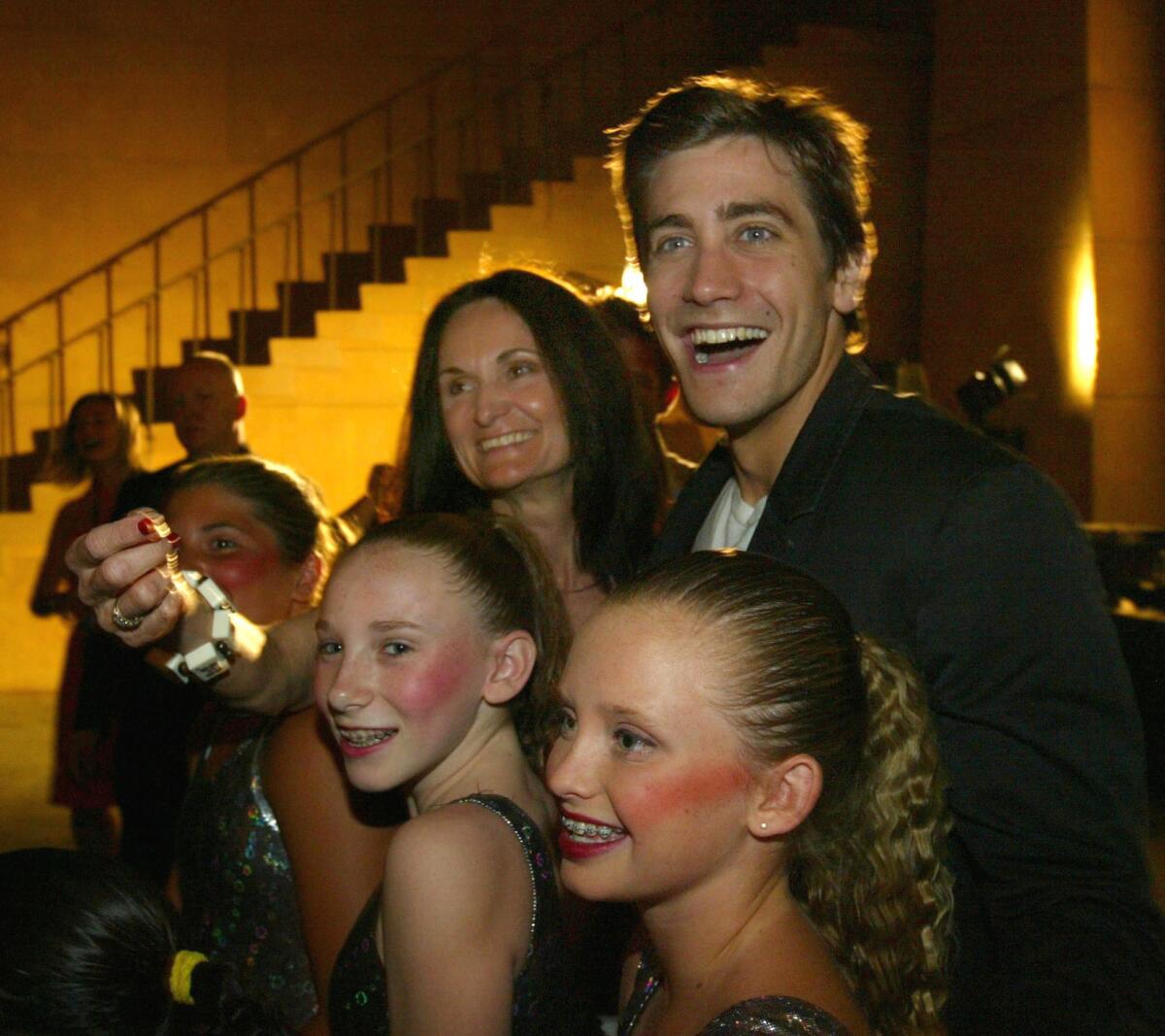
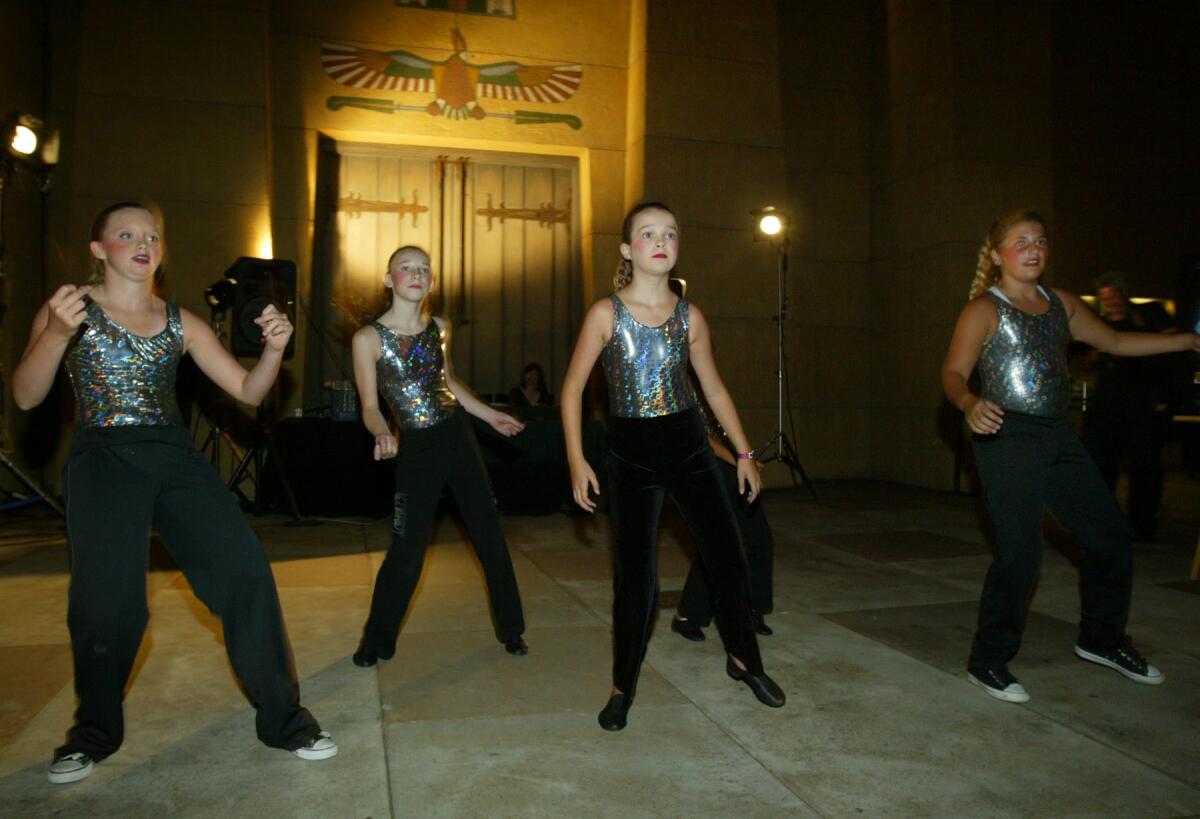
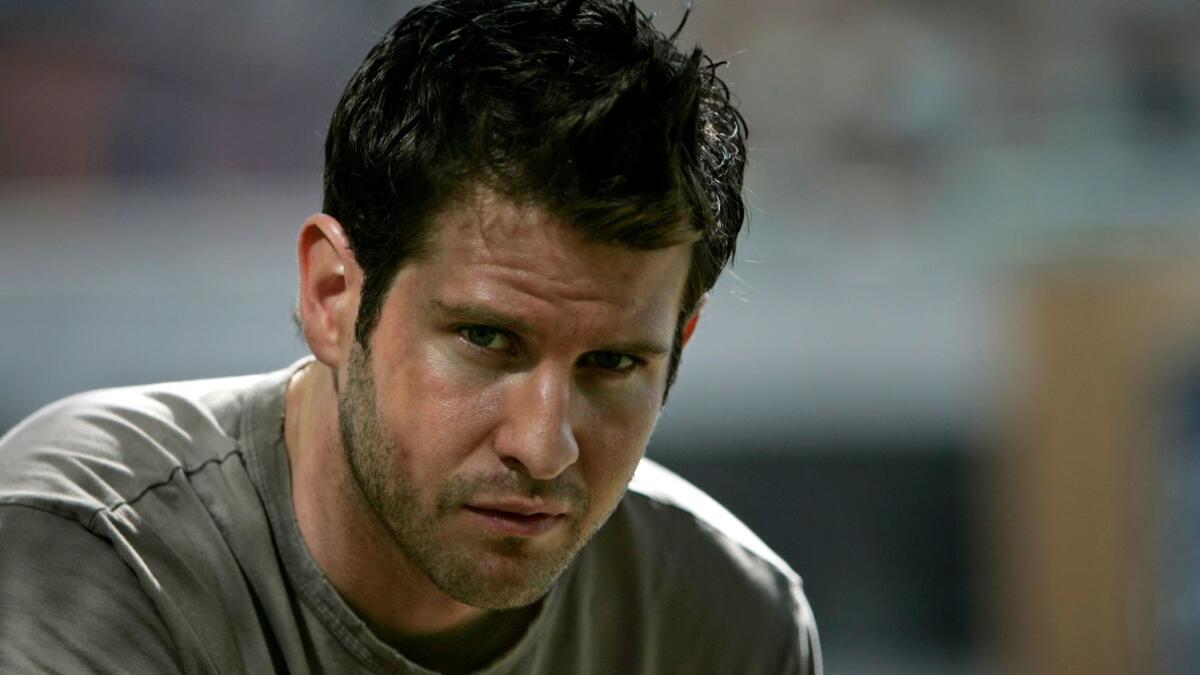
See the most-read stories in Entertainment this hour »
ALSO
Review: The ravishing sci-fi noir 'Ghost in the Shell' is fascinating, and not without its glitches
Review: 'The Boss Baby' is the rancid diaper of animated movies
From the archives: The LA Times 2007 review of Richard Kelly’s ‘Southland Tales”
Only good movies
Get the Indie Focus newsletter, Mark Olsen's weekly guide to the world of cinema.
You may occasionally receive promotional content from the Los Angeles Times.







